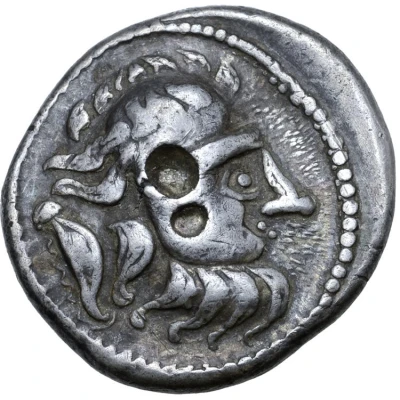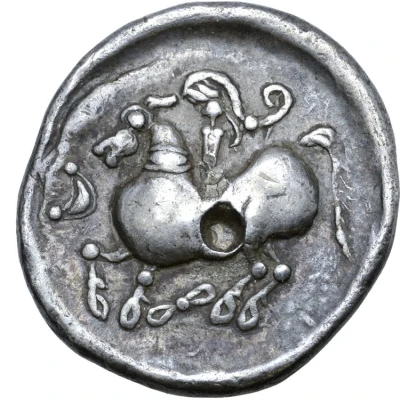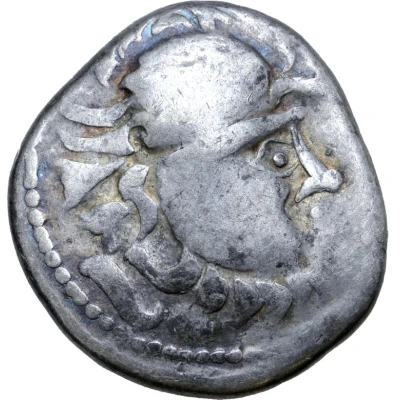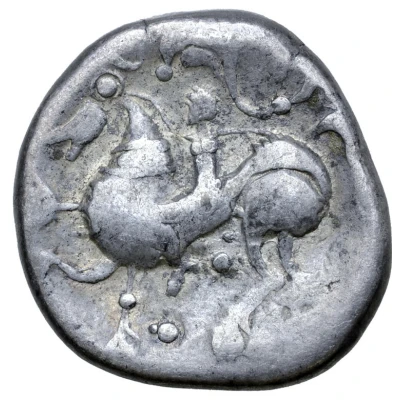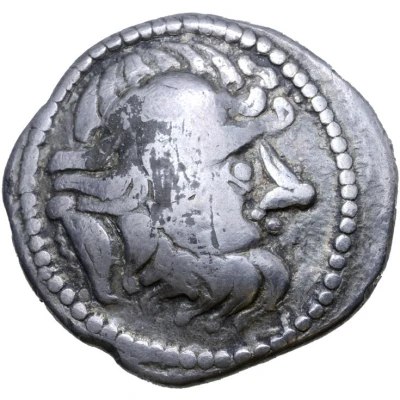
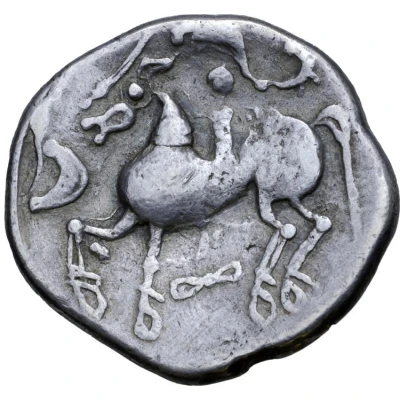

© Roma Numismatics Limited
Tetradrachm Kapostal Type 200 BC - 1 BC
| Silver | 13.31 g | 25 mm |
| Issuer | Hercuniates (Central and Eastern European Celts) |
|---|---|
| Type | Standard circulation coin |
| Years | 200 BC - 1 BC |
| Value | Tetradrachm (4) |
| Currency | Drachm |
| Composition | Silver |
| Weight | 13.31 g |
| Diameter | 25 mm |
| Shape | Round (irregular) |
| Technique | Hammered |
| Orientation | Variable alignment ↺ |
| Demonetized | Yes |
| Updated | 2024-10-09 |
| Numista | N#191438 |
|---|---|
| Rarity index | 100% |
Reverse
Stylised rider wearing crested helmet on horseback to left; crescent before, horizontal figure-of-eight below.
Comment
Examples of this type:• Example #1 (13.31g, 25mm, 12h; Very Fine)
© Image courtesy of Roma Numismatics Limited
◦ Ex-Hermann Lanz Collection; published in Kostial #770;
◦ Exhibited by the Staatlichen Münzsammlung München at the 1997 International Numismatic Congress in Berlin; at the Berliner Bank also in 1997; also exhibited at the Luitpoldblock Palmengarten, Munich in 2003 (exhibition #136[reverse]);
◦ Auctioned by Roma Numismatics Ltd, Auction XVIII, 29 September 2019, lot 197. Sold for 220 GBP.
◦ Auctioned by Auktionshaus H. D. Rauch GmbH, Auction 35, 7 October 1985, lot 5030.
• Example #2 (12.92g, 25mm, 1h; Very Fine)
© Image courtesy of Roma Numismatics Limited
◦ Ex-Hermann Lanz Collection; published in Kostial #769;
◦ Auctioned by Roma Numismatics Ltd, Auction XVII, 28 March 2019, lot 205. Estimated at 150 GBP, unsold.
Interesting fact
One interesting fact about this coin is that it features a unique blend of Celtic and Greek influences in its design. The obverse side of the coin depicts a stylized head of the Celtic goddess Epona, while the reverse side features a traditional Greek motif of a seated figure holding a scepter and a small statue of a mythical creature. This fusion of cultural styles reflects the complex cultural exchange and blending that occurred during the period of Celtic-Greek interaction in Central and Eastern Europe.
